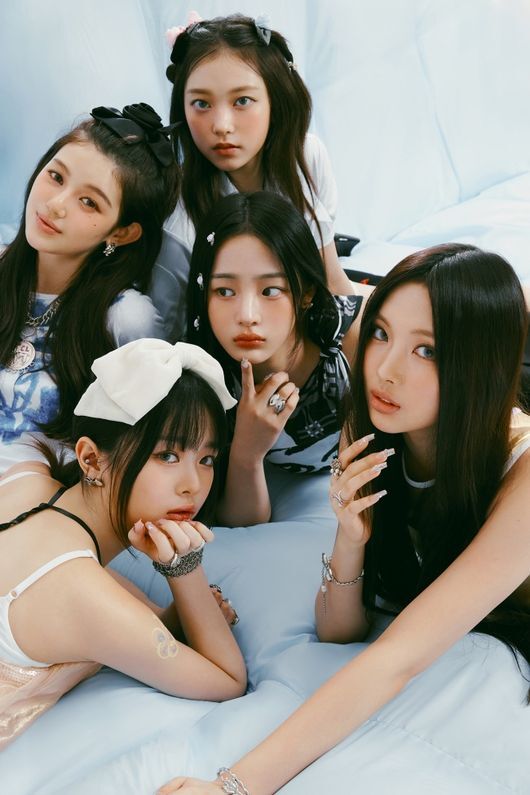The dispute between Hybe and its label Ador has ignited debates across the industry.
On May 22, Hybe initiated an audit of Ador's Min Hee-jin and executive A under allegations of breach of duty, bringing the conflict to the surface. Since then, continuous revelations and counter-accusations between the parties have only deepened the rift. Recently, issues such as shareholder agreement violations and the potential termination of exclusive contracts with the girl group NewJeans under Ador have come to the forefront, becoming a hot topic.
How do industry insiders view this situation? Insights were shared during a panel discussion on May 2, organized by Cultural Solidarity at the Franciscan Education Center in Jung-gu, Seoul. The panel included Lee Dong-youn, co-representative of Cultural Solidarity, Kang Hye-won, a visiting professor at Sungkyunkwan University, pop music critic Kim Do-hun, lawyer Lee Jae-kyung from Konkuk University, adjunct professor Lee Jong-im from Seoul Tech, and music critic Lim Hee-yoon.
Is the Multilabel Model to Blame?
During an emergency press conference on April 25, Min criticized Hybe's multilabel structure. Critic Kim Do-hun remarked, "Blaming the multilabel system oversimplifies the issue. It's more about Hybe's failure to manage the process."
Min's mention of a 'copy issue' with Belift Lab's rookie group ILY:1 at the press conference drew comments from the panel. "The public has unconditionally accepted Min's accusations of copying. This simplifies the complex issues of creativity and copying that need careful consideration," noted one speaker, emphasizing that the focal point in a multilabel system is how much creativity the parent company retains. "That's partly why Min has maintained her position at Hybe."
The discussion also touched on whether Ador, being the first independent label under Hybe, is really fostering a creative environment. "K-pop is currently focused on outcomes. If enough time isn't provided, issues around vocal abilities, references, and accusations of copying are bound to arise," they noted, adding, "At a time when K-pop has large-scale consumption, different attempts are necessary, and that's one reason Hybe hired Min. While the conflict consumes media attention, the desire for creativity remains common to all parties."

NewJeans
Legal Battle Outlook?
Hybe claims that Ador, led by Min, planned to take over management rights, and they have secured evidence to support this claim. On the other hand, Min's legal representatives argue that breach of trust requires an actual act of diminishing company value, which they claim hasn't occurred. "We are eager to see the lawsuit," said Min's legal representative.
Lawyer Lee Jae-kyung predicted, "Given the major shareholder (Hybe) has the right to convene an extraordinary general meeting, it is likely that the meeting will be permitted, and Hybe could possibly dismiss Min."
Voice of Self-Regulation in K-Pop
The panel highlighted that the industry often self-cannibalizes, particularly when internal disputes spill into public view. Professor Lee Jong-im criticized the lack of platforms for agencies to express their viewpoints and the superficial nature of idol-themed TV shows. "There's no channel for idols or their supporting staff to voice their concerns. That's a problem," she stated.
Furthermore, international concern about the K-pop industry was also discussed. "There have been multiple interview requests from journalists in Singapore and Japan, focused on issues like students abandoning their studies to become K-pop trainees in Korea," said Lee Jong-im, stressing the need for a thorough analysis of whether figures like 'BTS's father' or 'NewJeans mom' really perform parental roles in the lives of idols.






